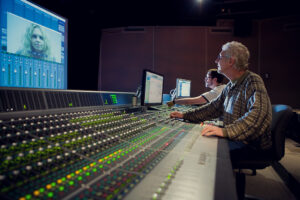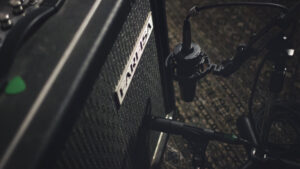We’re all guilty of using loops every now and then. However, there are always those that use them excessively. If you ask me, I believe using loops in music production should be avoided altogether. It obviously depends on the type of work you’re doing, but you’ll understand why using them can lead to potential issues.
Using loops in music production has become common since the introduction of platforms such as Splice, Prime Loops and more. What’s become even more common is the number of LAWSUITS against music producers using these loops. But wait… Aren’t these legally purchased loops legal to use commercially? The short answer is YES, but it’s more complicated than that. This blog post’s purpose is to inform you of the risks of using loops in your music and to show you how to use them properly. Stay tuned!
- Make sure the loops you’re using are legitimate
- Using the same loops as another music producer
- 5 reasons to avoid looping altogether
- Using loops to stimulate your creative process
- Using loops in music production is risky business!
Make sure the loops you’re using are legitimate
It doesn’t mean that every company selling loops on the internet is legitimate. Most people take the credibility of these companies for granted, but it’s important to exercise your due diligence.

The first step you can do is research the company BEFORE purchasing anything.
Here are some questions to ask yourself:
- How long has the company been around?
- Has anyone else used their products before?
- What do their terms and conditions look like?
Companies who have been around for longer obviously have a much better reputation.
It only takes a few moments to search them up on Google. You’ll most likely find reviews and testimonials. But why is this step so important?
Believe it or not, there have been reported cases of these companies selling uncleared material.
They’re probably not around anymore, but the truth is it wasn’t entirely their fault. It’s YOUR fault if you’re caught using copyrighted material without clearance. Small mistakes like these can potentially ruin your entire music career. No one will want anything to do with you anymore because you’ll become a RISK.

Is it really worth it to use loops?
Ask yourself that question every time you do.
My personal recommendation is to stick to companies like splice.com who have a proven track record. Either way, splice.com has everything you could possibly need in terms of samples and loops. Everyone is using it!
This brings us to another potential issue…
Believe it or not, music producers using loops from splice.com are STILL getting sued. But why?
Using the same loops as another music producer
There have been accounts of lawsuits where one music producer is suing another for using the same loop as they were. If the loop takes an important role in someone’s copyrighted song, it can be perceived as an integral part of that copyright.
I know, it’s ridiculous… BUT, this kind of stuff actually happens.
Most music producers aren’t equipped to fight legal battles they can’t afford. Even if it’s proven that the loop was in fact purchased and available to everyone, it can stir up a lot of unnecessary commotion. You’ll lose time, energy and money… Your most valuable assets!

Some music producers RELY on loops to create music. Don’t be one of them…
If the loops are used intelligently though, you can avoid attracting any unnecessary attention. The only loops I’ve ever used were percussion loops. I would avoid using anything that has a memorable melody. If you do, the best case scenario is your music won’t sound original.
Using percussion loops to “beef up” your tracks is as far as I’d go.
Even there, I prefer using MIDI loops because you can at the very least change them up. Audio loops can also be manipulated in compelling ways and I encourage you to do so. It’s okay to use a loop here and there, but it needs to be integrated into your creative process.
Here are some things you can do to your loops:
- Rearranging them
- Pitch shifting them
- Adding special effects
- Layering them in different ways
Use your imagination, it’s the least you can do!
Now that you understand the situation, we’re ready to get into the 10 reasons to avoid looping. That’s right, there’s more! I didn’t realize why until I started licensing my music for TV/Film, so it may not apply to you YET.
Here we go!
5 reasons to avoid looping altogether
Once again, these reasons may not apply to you particularly, but you should still consider them. You never know where your music will take you in the future, so it’s always best to be prepared. Are you ready?
- What if the music library you’re working with asks you to make modifications to one of your tracks? More times than none, it ends up being the one track that you used that loop on. Maybe they just want you to change the sound. Well, since you didn’t make it, you have no way of doing that. What do you tell them? This is why I use MIDI loops on those rare occasions.
- Loops can be used legally as long as they’re part of your song. Once you export your STEMS, one of those files will comprise your loop exclusively. What if someone purchasing a license for your music decides to use that ONE track? Now you’ve opened yourself up for what can be a potentially serious lawsuit. This is why I recommend altering your loops in some shape or form.
- Like we discussed earlier, using loops that are memorable can attract some unnecessary attention. If another music producer has already used the same loops before you, they can potentially sue you. It doesn’t mean they’ll win, but you don’t have time for lawsuits. Your business relationships will also begin questioning if they made a wise decision to partner up with you.
- We also discussed the potential of using loops that haven’t been obtained legitimately. Even with companies like Splice, you’ll never be 100% certain that what you’re purchasing won’t cause you any problems. The truth is, there’s no one scrutinizing every single loop that gets placed in the marketplace. You’re always taking a risk, it’s just up to you to decide if it’s worth it.
- Lastly, you may not have the ears for it, but some musicians can hear what authentic music sounds like. By overusing loops, you’re essentially making yourself sound less professional. As this becomes more of a habit, you’ll become dependent on loops to create and won’t be able to work without them. Just get out while you still can, trust me, you’re capable of so much more.
Not convinced yet? I’m not here to change your mind, I simply wanted to make you aware of the risks and potential drawbacks. However, there are some pretty interesting ways to incorporate loops into your creative process!
Using loops to stimulate your creative process
You can actually use loops without actually “using loops”. What do I mean by that? It’s simple… You can use loops like another bandmate to jam along with.

Once you’ve got something down, you can remove the loop!
For example, you can import one of those memorable loops into your project and create an accompaniment by harmonizing it. Maybe you can create a drum pattern that fits it like a glove? Whatever gets those creative juices flowing!
I sometimes undergo a similar process using Funklet (funklet.com).
By having a pre-made drum pattern to work with, it’s much easier to come up with ideas. I don’t always go this route, but it’s worked for me many times! You can then proceed to creating a similar drum groove or create something that feels completely different.
It’s kind of like a game of leapfrog; jumping from one idea to the other!
If you have the ears for it and you really like a particular loop, you can also transcribe it. It becomes much easier to make it your own once you’ve got it under your fingers.
So, I hope you realize that I’m not against using loops. I’ve used them too!
I’m simply against using loops as an excuse to NOT be creative. We’re artists, it’s our duty!
Using loops in music production is risky business!
After reading through all this, I hope you’ve developed an awareness for the risks involved with using loops. It’s not that using loops in music production is unprofessional, it’s that there’s a right way to do things.
I love jamming along to loops and it’s led me to have some incredible ideas!
The general guidelines for using loops are simple:
- Avoid using anything that too memorable
- If you can, opt for MIDI loops over audio loops
- I would stay away from loops that aren’t percussive
- I wouldn’t use more than one loop per track
If you follow these guidelines and practice your due diligence, you should be fine.
It’s even more important if you’re currently or planning to produce music for the TV/Film licensing industry. Even if you’re not, most of them still apply though and obviously, none of these principles apply if you’re producing music for personal use.
If you haven’t heard of splice.com, I highly recommend checking them out.
I hope you’ve found everything you were looking for. It’s not easy to come to terms with this stuff, especially if you’re a “heavy user”, but the fact that you read all of this proves to me that you’re a professional! I’d love to hear your thoughts and if you have any questions, feel free to leave them in the comments. If you’ve enjoyed, consider subscribing to my email list and sharing this blog post. Thanks for reading!
P.S.: I’m not a lawyer and therefore not qualified to give you professional legal advice. It’s your responsibility to make well-informed legal decisions.









10 thoughts on “Using Loops in Music Production | 5 Reasons To Avoid Looping”
Hi Stefan, very interesting article on the wise use of loops! I am wondering if you enlighten me as to the use of loops when purchased through perhaps a DAW or maybe a keyboard with backing loops! These are obviously previously recorded loops both MIDI and audio and in both percussion and music formats. I have been in discussion with my cowriter for quite a few years now about the use of them specifically for published music and licensed for TV/Film. loops are abundant but I hear music supervisors will steer away due to copyright issues!
Hello David!
I’m glad that you understand the importance of what covered in the article.
Loops that are included with your DAW (for example, Apple Sound Library with Logic Pro) still fall into the same category as other providers such as Splice Sounds.
However, it’s always better to go with “in-house” loops since marketplaces like Splice sometimes sell illicit loops by mistake (they make no guarantees and this is stated in their EULA).
MIDI loops are better since you can play them through your instrument of choice and can easily make it “your own”.
For everything else, just think about it logically…
If you use a loop in your track and someone else can use the same loop, will it be easily identifiable? Some sort of conga pattern that’s buried between your other instruments will be fine since it’s more difficult to tell with percussive instruments. However, if you use a chord progression that’s played by a really distinct synth, it’s much easier to identify.
Even the YouTube Content ID algorithm can pick that kind of stuff up (which is why they state NO LOOPS).
In essence, if you’re going to use 1-2 loops in your track, it’s fine. Just make sure it blends in nicely and try to make some changes (pitch, tempo, etc…).
Sound effects are best and percussion loops come 2nds. Everything else, I’d personally avoid.
Let me know if you’d like to discuss further. I hope this helps the discussions you’re having with your co-writer.
Thanks for stopping by, take care!
– Stefan
My question is, why do engineers frown upon using loops? I get it that it doesn’t allow them to mix tracks individually but if the loop sounds good in the mix & u can mix the surrounding tracks to blend with the loop, then what’s the problem?
Hey Nathan,
Luckily for you, I wrote an entire article that answers your question! ^^
Two of the main points I mentioned:
1) The possibility of ending up in court (i.e getting sued for copyright infringement)
2) Most loops cannot be edited if asked to revise the track (the exception being MIDI loops)
These are all very real concerns for professional musicians. If you’re doing music recreationally, then you have absolutely nothing to worry about. It has nothing to do with engineers frowning upon using loops. We’re just all trying to provide a professional service for our clients without getting sued (which happens quite frequently these days).
I hope that helps!
– Stefan
Thank you so much for your article on music loops! I do not have much knowledge on this topic, but through your article I have learnt so much. Your article has a very clear and clean structure which makes it so easy to navigate through and understand. Im in your article because I would like to send this to her as well. Since young, she is in love with music and has a recent interest in music production (she also aspires to be successful in it). Definitely will send this to her as I find that your article is very honest and trustworthy, which will surely benefit her in her career. I also love that you are so detailed on all your points and made me understand your topic very well after reading through. Great job done, and keep it up!
Hey jyongwa!
I’m glad to hear that your daughter is interested in music! I’m sure this blog post will come in handy one day. To be honest, I studied music in college and they never taught us this stuff. I wish they had!
If you’re ever looking for ways to encourage your daughter’s musical progress, feel free to reach out. I’d be more than happy to provide some assistance.
Thanks for stopping by and best of luck!
– Stefan
Hi,
I never knew the consequences of using illegitimate loops were as grave as this. Thanks for going out of your way to still share tips on how to use loops for those producers that would still want to use them. From your post, it is best if one just avoid them altogether. I’m not into music production, so pardon me if my questions sounds weird to you. Sometimes I find some songs sounding alike, I mean the rhythm and the beats. Is loop the cause of it? And also, are there no alternatives for using loops?
Hey Isanren!
To answer your question, yes. Many music producers (especially in EDM) use loops instead of creating their own beats. It’s easy to get away with because copyrighting drum patterns isn’t possible. However, when someone actually performs on a recording, it’ll always sound kind of different.
It’s similar to how we speak; we can use the same words but it sounds different depending on who says those words. I hope that makes sense!
Secondly, there are in fact alternatives to using loops. What’s most important is that they don’t become the main part of your song. I wouldn’t use more than one per song and I would avoid using anything too memorable. Other than that, it should be fine!
Thanks for reading, I hope I answered your questions.
– Stefan
Interesting post. I’m not a craftsman, just a lover of quality music. In my youth I received some musical education. I was impressed by your honesty in the advice you gave your colleagues because I know it’s a fierce competition. My opinion is that you have to be creative as an artist and I agree that it is better to avoid loops.
Hey Carmen!
I didn’t talk about it much in this post, but using loops inappropriately also impacts the listener’s experience negatively. If you’re a lover of quality music, you must have noticed how difficult it is to come across “good” music these days.
In the 21st century, it seems that more and more musicians avoid getting their hands dirty (so to speak). In other words, I believe music should be made by humans playing their instruments. It’s a bit old-school, but it makes all the difference in my opinion.
However, there are still such artists nowadays. You just gotta look for them!
Thanks for your comment!
– Stefan